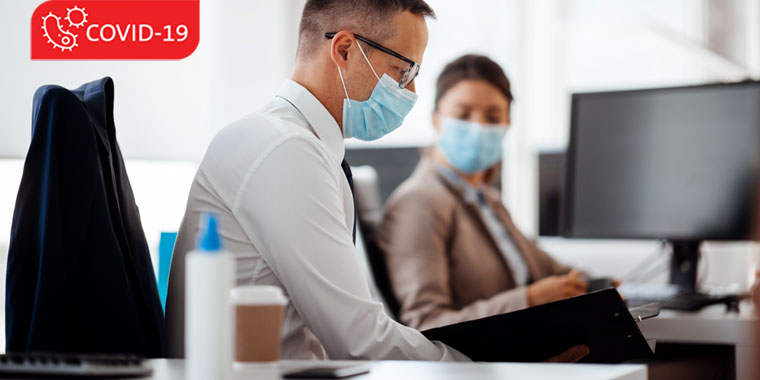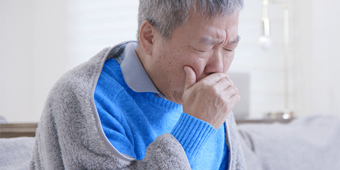Safety Check: Returning To Work During COVID-19

Answer a few questions and we'll provide you with a list of primary care providers that best fit your needs.
As millions of Americans get back to work in stores, offices, and factories, many have questions about how to stay safe at work in the face of an ongoing COVID-19 pandemic.
Premier Health Now spoke with Steven Burdette, MD, medical director of infection prevention at Miami Valley Hospital in Dayton, Ohio, about what employees and employers can do to protect themselves, customers, and co-workers as they return to work.
Practice Strict Hygiene
Whether you work in an office or store setting, pay attention to “high-touch points,” Dr. Burdette says. “Wipe down counters, door knobs, clothing racks – anyplace people are putting their hands frequently.”
He recommends setting up hand hygiene stations near high-traffic areas, such as registers in stores or copiers in an office setting. Alcohol-based hand sanitizer should contain more than 62 percent ethanol.
If you haven’t run water in your workplace faucets or fountains for two weeks or longer, Dr. Burdette also recommends letting water run through the pipes for at least five minutes to get rid of lingering bacteria.
“While we’ve talked about COVID, there are other infections that are still around,” Dr. Burdette explains. “Standing water can [be a source of] legionella or Legionnaires’ disease, causing bad pneumonia, shortness of breath, high fevers, intestinal issues, and confusion. We don’t need any other respiratory infections right now.”
Other workplace recommendations from the Occupational Safety and Health Act (OSHA) include:
- Encourage respiratory etiquette, including using the crook of your elbow to cover coughs and sneezes
- Provide tissues and trash receptacles for workers and guests
- Discourage workers from using other workers’ phones, desks, offices or other work tools and equipment, when possible
- Promptly identify and isolate potentially infectious individuals
- Make sure employees know the symptoms of COVID
Universally Wear Masks
Wear a mask at all times when you go into work or go out in public places. Masks don’t only protect you from your own mouth and nose from taking in infected droplets from others. They also prevent transmission of droplets to other people and to surfaces that other people may touch. In addition, a mask prevents you from touching your own nose and mouth.
Dr. Burdette offers guidance on how to safely put on and take off a face mask, including proper hand hygiene before and after using the mask and how to store and clean your mask.
Maintain Physical Distance
Follow practices already put in place by essential services, such as grocery stores: Create physical space between people as much as possible. If you are serving the public, limit the number of people who can enter your business at one time. Wear masks and install plexiglass guards, if that makes sense in your business. Discontinue services in your workplace cafeteria where people are sharing food and serving utensils, such as a self-serve salad bar. Create work policies that allow people who are feeling sick to stay home, without fear of harsh consequences.
“If we all work together on taking these precautions, it will help us save lives and significantly reduce the spread of infection,” Dr. Burdette says. “Following these and similar guidelines is a smart way to take care of ourselves and each other.”
Answer a few questions and we'll provide you with a list of primary care providers that best fit your needs.
Source: Steven Burdette, MD, Medical Director of Infection Prevention, Miami Valley Hospital; New York Times; Occupational Safety and Health Act





